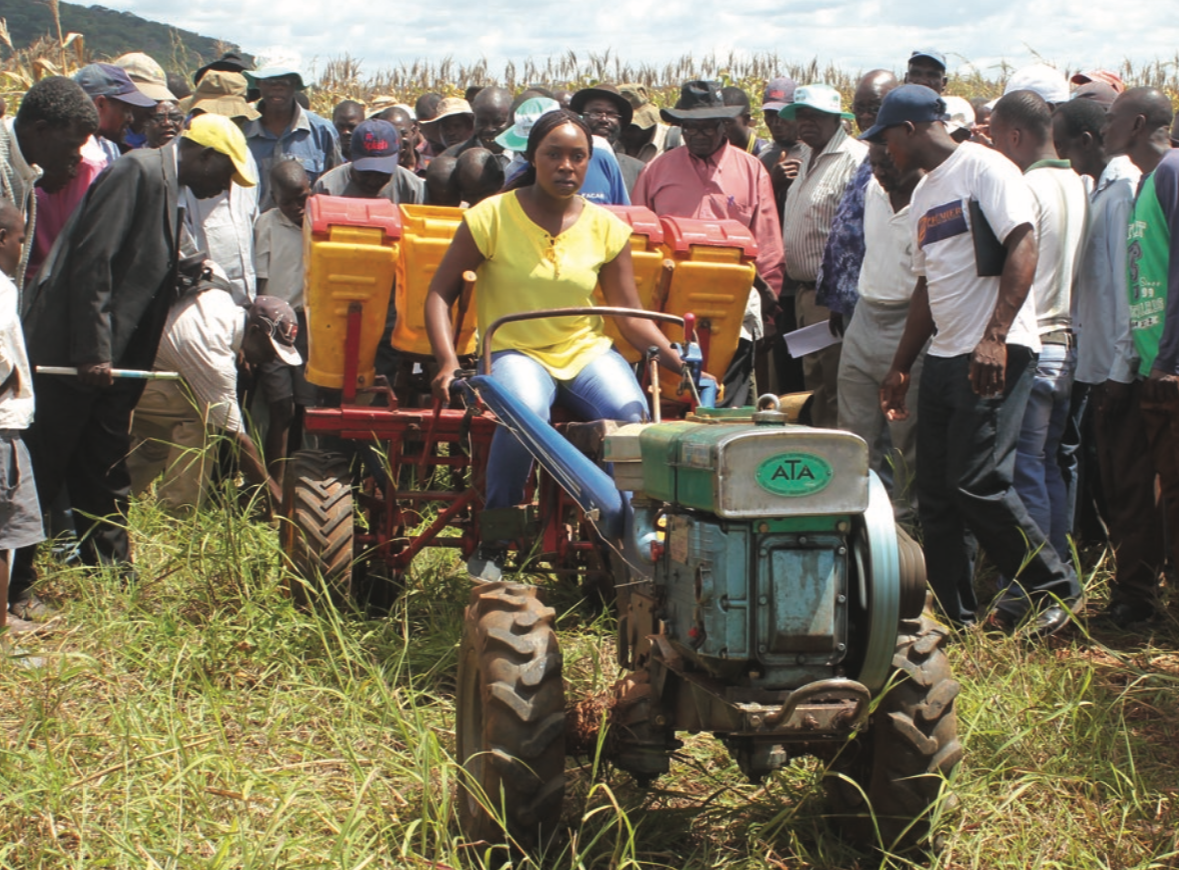 A new fact sheet debunking myths about agricultural labor and mechanization has been presented at the Farm Mechanization and Conservation Agriculture for Sustainable Intensification (FACASI) end of project review meeting in Harare, Zimbabwe.
A new fact sheet debunking myths about agricultural labor and mechanization has been presented at the Farm Mechanization and Conservation Agriculture for Sustainable Intensification (FACASI) end of project review meeting in Harare, Zimbabwe.
The fact sheet, based on a recent study by the International Maize and Wheat Improvement Center (CIMMYT), shows African farming households are far more dependent on hire labor markets, and much more inclined to hire mechanization services, than previously assumed.
Download the fact sheet “Debunking myths about agricultural labor and mechanization in Africa”.
FACASI review meeting
Over 50 agriculture for development specialists are gathering from May 11 to 17, 2019, to review the FACASI project’s progress. The project investigated how small-scale mechanization, such as two-wheel tractors with attachments, can be used to improve farm power balance, reduce labor drudgery, and promote sustainable intensification in Eastern and Southern Africa. The project also built the capacity of farmers to use size-appropriate machinery and trained hire service providers, to increase the equitable availability of mechanization services.
At the review meeting, participants will focus on widening the availability and use of small mechanization through commercialization, social inclusion, policy implications, and how to best use research outputs. They will also get to see two-wheel tractors in action and meet project farmers in visits to different districts around Zimbabwe.
In attendance are representatives from the project’s funder, the Australian Centre for International Agricultural Research (ACIAR), and partners including Ethiopia’s Ministry of Agriculture, the University of Zimbabwe, Zimbabwe’s Ministry of Lands Agriculture Water Climate and Rural Resettlement, the University of Southern Queensland, service providers and training centers from Zimbabwe, and private sector representatives from Zimbabwe and Ethiopia.
For further information on CIMMYT’s agricultural mechanization work in Africa:
Training manual greases the wheels for mechanization entrepreneurs
African youth find entrepreneurial opportunity in agricultural mechanization
 Nutrition, health and food security
Nutrition, health and food security